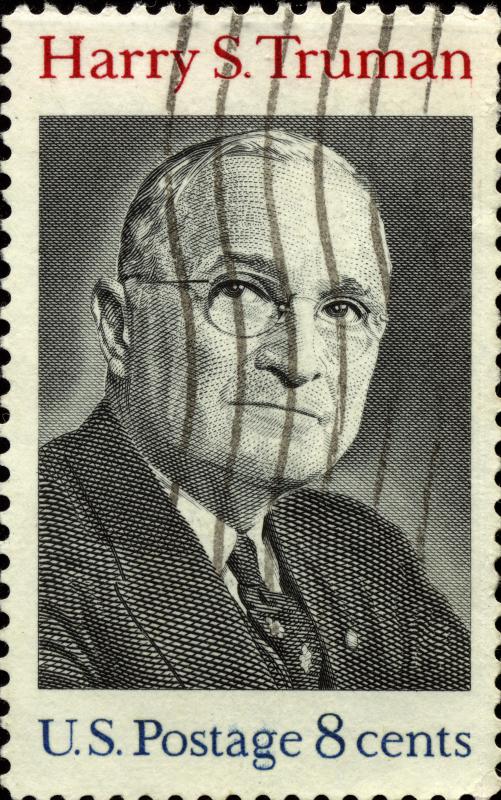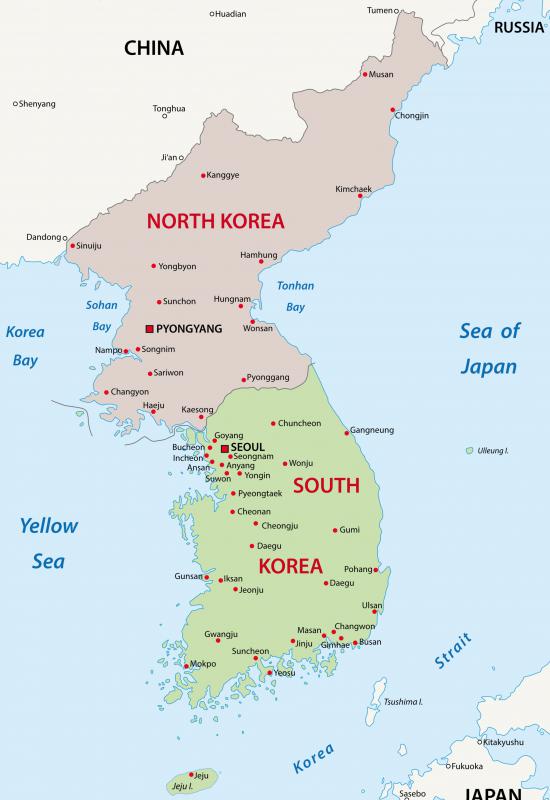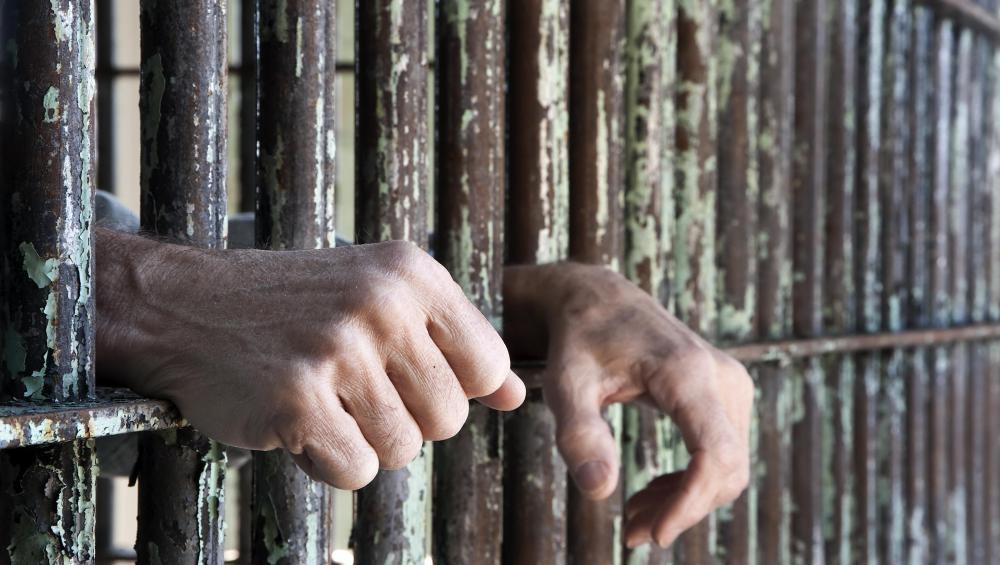At WiseGEEK, we're committed to delivering accurate, trustworthy information. Our expert-authored content is rigorously fact-checked and sourced from credible authorities. Discover how we uphold the highest standards in providing you with reliable knowledge.
What Was the Korean War?
The Korean War was fought between June of 1950 and July of 1953. Also known as the Korean Conflict, the Forgotten War and the Fatherland Liberation War, it officially began after North Korea invaded South Korea by crossing the boundaries of the two regions known as the 38th parallel. Beginning as a civil conflict between two provisional governments competing for control, the war quickly escalated into a multi-national conflict. It ended with a ceasefire between the two warring factions, North and South Korea, but without the security of a formally established peace treaty. The North Koreans found backing from Russia and China while sympathies for the South lay with the United Nations and the United States.
Some refer to the Korean War as the “Forgotten War” because it occurred between the bloodier and more globally devastating conflicts of World War II and the Vietnam War on the timeline. The biggest military weakness of North Korea, despite the success of its 135,000 troops, was its inability to transport much needed supplies south to follow the war’s progression. Many civilians who were forced to carry supplies across the enemy lines of the 38th parallel during the Korean War were killed by air attacks. In fact, of the 600,000 Koreans who lost their lives in the war, 85 percent of them were civilians. While North Korea lacked the stability of adequate transportation lines, South Korea had fewer and more poorly armed troops, numbering about 65,000.

President Truman ordered American naval and sea forces under the command of General Douglas MacArthur into the fray to counteract North Korea’s advances, making the Korean War the very first armed confrontation of the Cold War. Backed by a United Nations command calling all members to support the struggle of South Korea, MacArthur’s military might secured South Korea, thus confronting communism’s bold global challenge and warding off the intervening forces of China and Russia.

This war represents the first unified effort on the part of the free world to thwart communist aggression. Prisoners of war on both sides were badly treated and many died terrible deaths. The conflict started by the Korean War more than half a century ago continues to this day, not in military battle, but in a tense, heavily armed standoff along the Demilitarized Zone, also known as the DMZ.
AS FEATURED ON:
AS FEATURED ON:
















Discussion Comments
Because of how long ago it happened in the relative lack of education about the Korean War in our current curriculum there is no doubt in my mind why people do not realize this is the first armed conflict of the Cold War.
This would go on to be one of the longest and scariest conflicts and mankind with most potential deadly harms and affects the Cold War began with a simple disagreement between two Korean nations.
I wonder if our military and political leaders of the time realized just what kind of conflict this would turning to and that would actually end up involving almost all of Asia and Russia and the Communist states that sprouted from this movement towards communism.
Of course although all we have now from this very sad time on the Korean Peninsula is a still divided country area and the Korean War Memorial pictures that remind us of the atrocities of war that what occurred to these people.
@CoffeeJim is right about the continuing military conflict. The scary part is that it seems that all it would take to set off a major world disaster is one small political move by this very outrageous leader of North Korea.
It is his delusions and unreliability in the world that continues to create an unease throughout the Southeast Asian region. Only when his fascism is defeated with the area in the country surrounding North Korea be able to rest at ease and combined with South Korea once again.
The most amazing part about the Korean War is the fact that technically war store is still going on between the two countries. To this day the demilitarized zone between the two countries still has active members of military on both sides.
If there was to be a conflict that erupted into war these two countries would be able to start the conflict within a matter of minutes from each other.
The one saving grace that we have about these countries being so close is that the area is riddled with mines. While these mines create significant issues for local residents it does keep the two countries at bay from each other.
At some point in time the conflict will become resolved and the two Koreas will come together. In the meantime we have to face the atrocities that fascism and communism brings to the North the starvation of its people that has resulted.
I think the saddest part about the Korean War is the amazing loss of life and horrible atrocities are almost overshadowed in history by the greatness of world war two.
Many men who had served as soldiers in the world war two conflicts also had a chance of serving in the Korean war conflict as well.
My grandfather was in the Marines in the Korean War after having served in the Navy in World War II.
What Was The Reason For This Horrible War? I Mean There Has To Be Some Reason Nor. Korea Crossed The 38th Parallel To Invade So. Korea. And Who Is Responsible For Their Actions? Is It There Commander? Sargent? Leader? Government? Who?
Post your comments